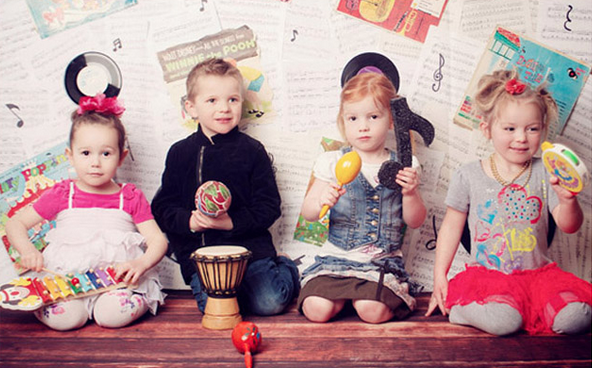It’s no secret that the Bonkers Beat team is passionate about music and the magic it can bring to children’s lives, but our belief in music as a part of early childhood education is based on science just as much as it is on enjoyment.
There is a huge amount of studies that indicate the benefits of music – just last week researchers from Boston added to the list, concluding that music enhances the ability to generally manage in life. This isn’t surprising when you consider the fact that music connects with children on every level, from the physical to the emotional and intellectual, engaging the whole brain – now that’s impressive.
Many educational institutions include minimal music, if at all, but the research is strong – music needs to be on the agenda, specifically in early childhood education where the benefits can be particularly notable for children aged from one to five years.
Putting the pleasure of music aside, let’s take a look at some of the greatest benefits of music and its contribution to children’s development. Music Play For Life (http://www.musicplayforlife.org) refers to a 2001 study in Switzerland involving more than 1200 children, saying “when 3 other curriculum classes were replaced with music classes, young children made more rapid developments in speech and learned to read easier. They also learned to like each other more, were less stressed and enjoyed school more”.
It is clear from looking at a child’s response to music that they enjoy it – the emotional response to smile and sing along, combined with the physical response to move their bodies all demonstrate the connectedness children feel to music.
Early childhood educator April Kaiser from the USA compiled a wonderful list of the skills (http://www.niu.edu/ccc/resources/importanceofmusicandmovement.pdf) that music and movement can help to develop and many of them are absolutely crucial to overall development:
1. Participating in a group
2. Social skills
3. Express emotions
4. Enhance self?concept by sharing music and dance of each other’s culture
5. Refine listening skills?noticing changes in tempo or pitch
6. Awareness of movement and body positions
7. Creativity and imagination
8. Learn new words and concepts
9. Explore cause and effect
10. Develop large motor skills
11.Improve balance, coordination and rhythm through dance and movement activities
12. Improve small motor skills?learning finger plays and playing musical instruments.
(Sources: The Creative Curriculum for Preschool Children by Diane Trister Dodge and Laura J. Colker)
Got something to add? We’d love to hear your thoughts on the magic that music can bring to the lives of children on our Facebook page.

